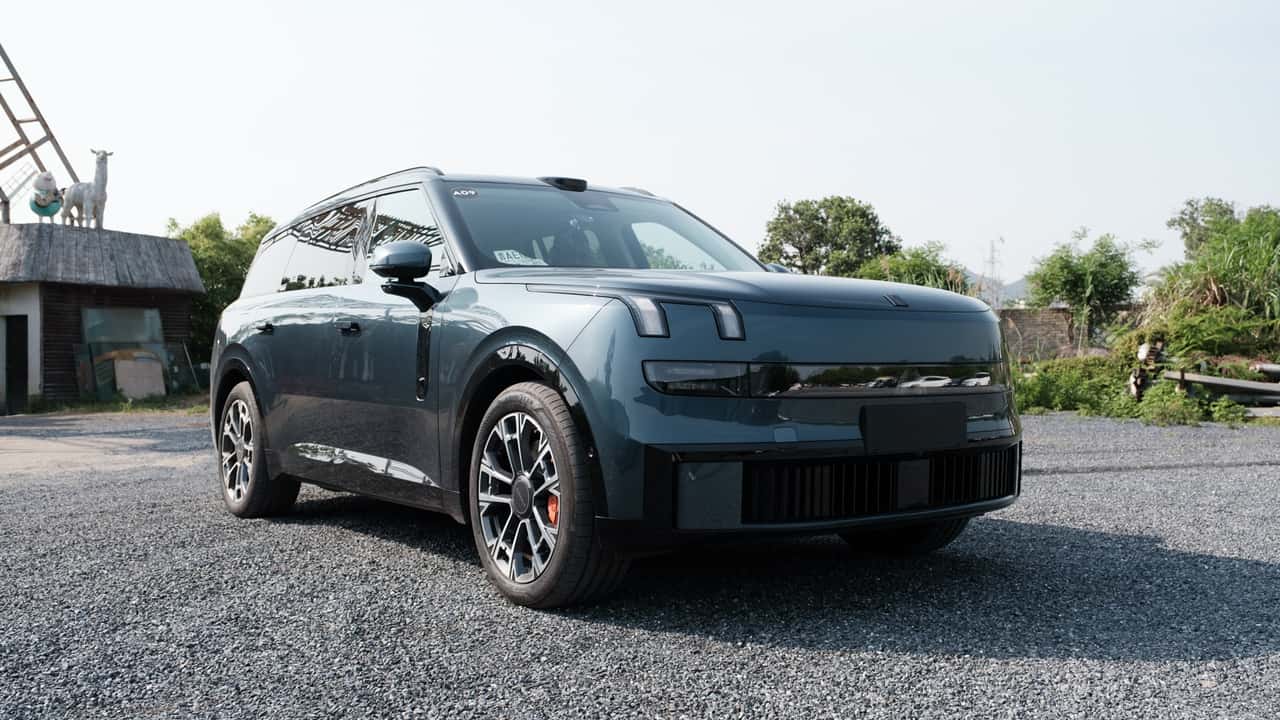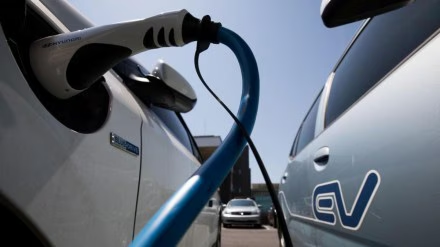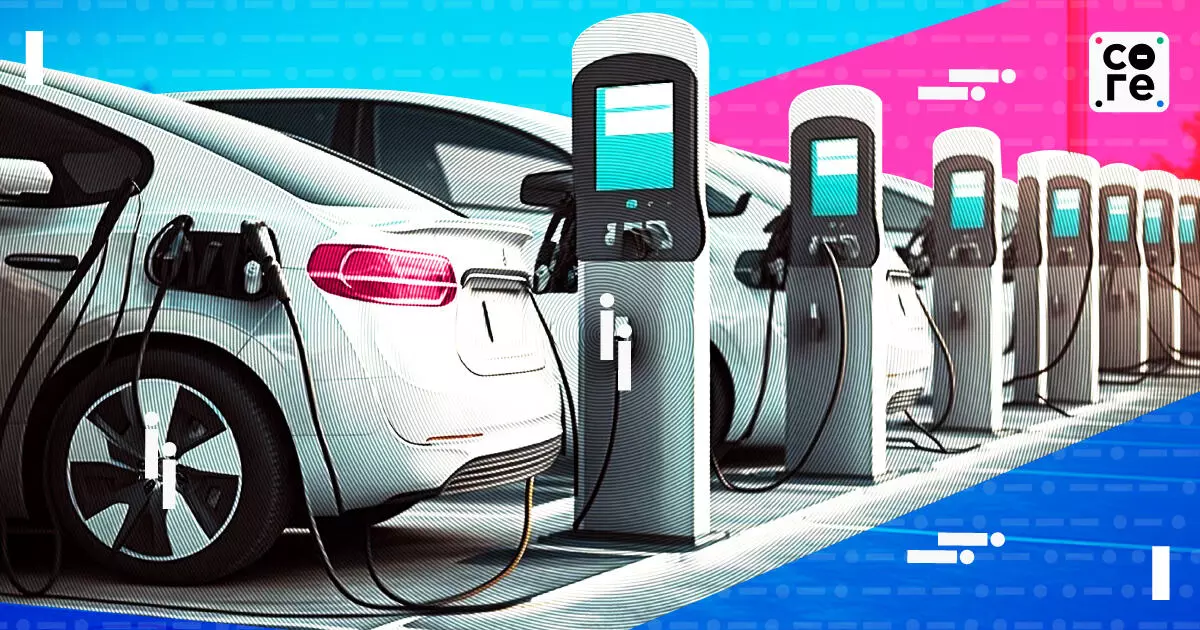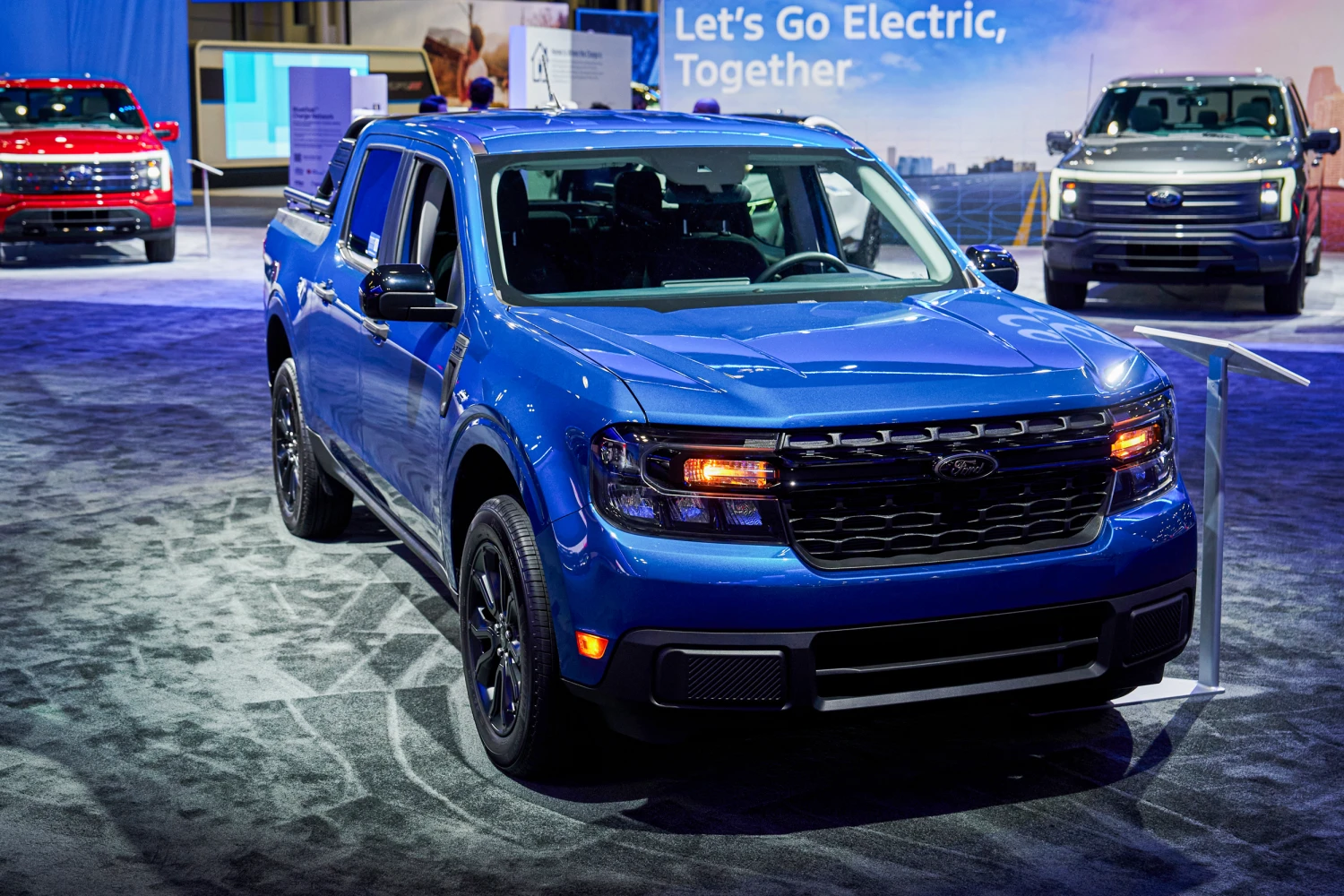As environmental concerns grow and fuel prices continue to fluctuate in 2025, more car buyers are turning toward eco-friendly alternatives. Governments worldwide are tightening emission norms, and cities are pushing for greener transport solutions. As a result, sustainable vehicles have become more than just a trend—they’re a necessity. While electric vehicles (EVs) have taken center stage in this transition, hybrid cars offer a practical and accessible middle ground for drivers not yet ready to go fully electric.
Hybrid cars play a crucial role in reducing carbon emissions without compromising the reliability of internal combustion engines. By blending conventional fuel technology with electric power, hybrids help reduce fuel consumption and emissions, making them ideal for both urban commutes and long drives. They bridge the gap between traditional vehicles and battery-electric models, offering both performance and efficiency.
This article is designed to guide eco-conscious buyers in 2025 who are exploring hybrid vehicles for their next car purchase. Whether you’re looking for fuel efficiency, low emissions, or a quieter drive, this guide covers it all.
We’ll begin by explaining what hybrid vehicles are and how they work. Then, we’ll dive into a list of the top 5 hybrid cars in 2025, each with detailed pros and cons. You’ll also find a comparison table to make your decision easier. By the end, you’ll also learn about hybrid disadvantages and other green alternatives worth considering. Let’s begin your journey toward a greener drive.
List of the 5 Top Hybrid Cars in 2025
With rising fuel prices and increasing environmental concerns, hybrid cars have become a smart choice for eco-conscious buyers in 2025. Combining fuel efficiency with lower emissions, these vehicles offer a practical middle ground between petrol cars and EVs. Here are the top 5 hybrid cars worth considering.
- Toyota Innova HyCross Hybrid
- Honda City e:HEV (Hybrid)
- Maruti Suzuki Grand Vitara Hybrid
- Toyota Urban Cruiser Hyryder Hybrid
- Lexus NX 350h (Luxury Hybrid SUV)
Review of the 5 Top Hybrid Cars in 2025
Below is a quick review of the best hybrid cars this year, highlighting their strengths, specs, and ideal users. As more buyers seek sustainable mobility without compromising on features or comfort, these top models stand out.
1. Toyota Innova HyCross Hybrid

The Toyota Innova HyCross Hybrid stands as one of the most sought-after MPVs in India with a bold transition from diesel to a petrol-hybrid setup. It uses Toyota’s renowned 5th-gen TNGA 2.0L strong hybrid powertrain, paired with an electric motor to deliver both performance and exceptional fuel economy.
Engine Specs and Hybrid System
- 2.0L petrol engine with a self-charging strong hybrid system
- Combined output: 183 PS
- e-CVT transmission ensures smooth gearless driving
- The battery is recharged through regenerative braking and engine assistance
Fuel Efficiency
- Claimed mileage: 23.24 km/l (strong hybrid variant)
- Real-world mileage: 18–20 km/l in mixed driving conditions
Features
- ADAS with lane keep assist, adaptive cruise control, and automatic emergency braking
- Panoramic sunroof, ventilated seats, and ambient lighting
- Toyota’s 10.1-inch infotainment system with Android Auto & Apple CarPlay
- Spacious 7- or 8-seater configuration
Pros
- Spacious MPV with family-friendly comfort
- High mileage despite its size
- Toyota’s proven hybrid tech and reliability
Cons
- The hybrid system is only available in the top variants
- Higher price point compared to ICE alternatives
Ideal For:
Large families and long-distance highway travelers looking for comfort, space, and reduced fuel bills.
2. Honda City e:HEV (Hybrid)

The Honda City e:HEV brings hybrid technology to India’s beloved mid-size sedan. Powered by Honda’s i-MMD (Intelligent Multi-Mode Drive) system, this strong hybrid can drive in full-electric mode at low speeds and uses the engine as a generator when needed.
i-MMD Hybrid System Explained
- 1.5L Atkinson-cycle petrol engine
- Combined power output: 126 PS
- Electronically controlled CVT gearbox
- The system automatically toggles between EV, hybrid, and engine modes
Fuel Economy
- Claimed mileage: 27.13 km/l
- Real-world usage yields around 22–24 km/l in city conditions
Features
- Honda Sensing suite: collision mitigation, adaptive cruise, lane assist
- Fully digital instrument cluster and electric parking brake
- Premium beige leather interiors and connected car tech
- Decent 506L boot capacity (reduced in hybrid)
Pros
- Smooth, silent, and refined driving experience
- Excellent fuel economy for a sedan
- Honda’s hybrid tech is both reliable and efficient
Cons
- Pricier than petrol-only City variants
- Slight reduction in boot space due to battery placement
Ideal For:
Urban professionals and environmentally conscious city commuters who want a comfortable daily drive with low running costs.
3. Maruti Suzuki Grand Vitara Hybrid

Maruti’s flagship SUV, the Grand Vitara, marks the brand’s entry into the strong hybrid space. Co-developed with Toyota, it uses the same hybrid setup as the Urban Cruiser Hyryder but at a more accessible price point.
Strong Hybrid Variant Details
- 1.5L petrol engine with Toyota-sourced hybrid tech
- Combined output: 116 PS
- e-CVT automatic transmission
- Available in both mild hybrid and strong hybrid options
Fuel Efficiency
- Strong Hybrid: Claimed 27.97 km/l
- Mild Hybrid: Claimed 21.11 km/l
- Real-world: 20–25 km/l (depending on variant and use case)
Features
- 360-degree camera, head-up display, ventilated seats
- 9-inch SmartPlay Pro+ touchscreen with connected car features
- Wireless charging, rear AC vents, and panoramic sunroof
Pros
- Most affordable strong hybrid SUV in India
- Backed by Maruti’s extensive service network
- Excellent mileage, especially in city traffic
Cons
- Strong hybrid variant available only in top trims
- Mild hybrid lacks electric-only driving capability
Ideal For:
Budget-conscious buyers wanting a fuel-efficient SUV without compromising on urban comfort or service accessibility.
4. Toyota Urban Cruiser Hyryder Hybrid

Built on the same platform as the Grand Vitara, the Toyota Urban Cruiser Hyryder carries the signature reliability and refinement that Toyota hybrids are known for. The strong hybrid variant is especially popular among city dwellers and first-time green car buyers.
Battery-Motor Performance
- 1.5L TNGA petrol engine with a strong hybrid setup
- Power output: 116 PS
- Self-charging battery with regenerative braking
- Capable of short electric-only drives (ideal in traffic jams)
Features and Technology
- Advanced touchscreen infotainment, connected car suite
- Auto climate control, rear AC vents, and ventilated front seats
- Toyota i-Connect with smartwatch compatibility
- Dual-tone styling and premium interior finishes
Pros
- Excellent urban fuel efficiency
- Electric-only mode adds to comfort in city traffic
- Premium finish and Toyota’s long-term reliability
Cons
- Boot space slightly compromised due to battery pack
- No diesel option in the lineup
Ideal For:
Compact SUV buyers focused on fuel savings, smart technology, and a lower carbon footprint in city use.
5. Lexus NX 350h (Luxury Hybrid SUV)

For eco-conscious buyers who don’t want to compromise on luxury, the Lexus NX 350h offers a seamless hybrid experience paired with top-of-the-line features. This self-charging hybrid SUV is a strong hybrid, offering performance and refinement in one elegant package.
Performance-Focused Hybrid System
- 2.5L petrol engine with dual electric motors
- Combined output: 240 PS
- e-CVT automatic with AWD capability
- Self-charging battery; no plug-in needed
Luxury Features
- 14-inch touchscreen infotainment with Lexus Interface
- Panoramic sunroof, heated & ventilated seats
- 64-color ambient lighting, Mark Levinson premium audio
- Lexus Safety System+: adaptive cruise, blind-spot monitor, lane tracing
Pros
- Smooth and silent performance
- High-end interiors with luxurious fit and finish
- Advanced driver-assist and infotainment features
Cons
- Premium price tag (~₹70+ lakh)
- Limited charging infrastructure if opting for plug-in alternatives
Ideal For:
Affluent buyers who seek a green option without sacrificing comfort, technology, or brand prestige.
What is a Hybrid Car?
A hybrid car is a vehicle that uses both an internal combustion engine (ICE) and an electric motor to power the wheels. This combination allows for improved fuel efficiency, reduced emissions, and smoother driving experiences compared to traditional petrol or diesel cars.
Types of Hybrid Systems:
- Mild Hybrid: A mild hybrid uses a small electric motor that assists the engine but cannot power the car on its own. The electric system usually supports start-stop operations, regenerative braking, and minor acceleration boosts. While it doesn’t drive on electricity alone, it helps save fuel in stop-and-go traffic.
- Full Hybrid (Strong Hybrid): A full hybrid features a larger electric motor and battery setup. It can drive using the engine, the electric motor, or a combination of both. Full hybrids can operate in pure electric mode at low speeds, such as during city commutes. The battery is charged automatically through regenerative braking and engine power—no need to plug it in.
- Plug-in Hybrid (PHEV): PHEVs have a much larger battery capacity than full hybrids and can be plugged into a charger. They offer a longer pure-electric range (typically 40–80 km) and switch to engine power for longer trips. They’re ideal for those with short daily commutes and access to charging infrastructure.
How It Works (Simplified):
When you start a hybrid car, it may run silently on electric power. As you accelerate, the system intelligently switches between electric and fuel modes to optimize performance and efficiency. During braking or coasting, the energy is captured and used to recharge the battery (regenerative braking).
How Hybrids Differ from EVs:
While EVs run only on electric power, hybrids combine the best of both worlds. You don’t need to worry about charging unless it’s a plug-in model. That makes hybrids more practical in areas where EV charging infrastructure is still developing.
Advantages of Hybrid Cars Over Traditional Fuel Vehicles
As environmental awareness and fuel costs rise, hybrid cars are becoming increasingly popular in India and around the world. These vehicles combine a conventional internal combustion engine with an electric motor, delivering multiple advantages over traditional petrol or diesel cars.
Superior Fuel Efficiency & Reduced Emissions
One of the biggest advantages of hybrid cars is improved fuel efficiency. The electric motor assists the petrol engine, especially during acceleration and stop-start traffic, which significantly reduces fuel consumption. This leads to lower CO₂ emissions, making hybrids a cleaner alternative for everyday commutes.
Regenerative Braking and Energy Optimization
Hybrid vehicles use regenerative braking systems that convert kinetic energy lost during braking into electrical energy, which is stored in the battery. This smart energy recovery reduces dependency on external charging and maximizes every drop of fuel consumed, making hybrids efficient in city conditions.
Tax Benefits and Incentives (2025)
Many governments, including India, offer financial benefits for hybrid car buyers. In 2025, India continues to promote cleaner mobility under schemes like FAME-II, which provides subsidies and GST reductions for hybrid and electric vehicles. Some states also offer reduced road tax and registration fees for hybrid models.
Quieter and Smoother Driving Experience
Hybrid cars often start in electric-only mode, especially at low speeds. This results in silent operation, ideal for congested city roads. The transition between electric and petrol modes is seamless, delivering a smooth and refined driving experience.
Lower Running Costs in Urban Areas
Thanks to reduced fuel usage and smart energy management, hybrid cars offer lower per-kilometre running costs, especially in stop-and-go traffic. Over time, the savings on fuel and maintenance add up, making hybrids economical for daily drivers.
In summary, hybrid cars strike a practical balance between performance, sustainability, and long-term cost savings, making them a smart investment for modern drivers.
Comparison Table: Top 5 Hybrid Cars in 2025
When choosing the best hybrid vehicle, buyers must weigh fuel efficiency, cost, space, and technology. The table below summarizes key specifications and advantages of the top 5 hybrid cars in 2025:
| Car Model | Type of Hybrid | Mileage (km/l) | Engine (cc) | On-Road Price (₹) | Pros | Cons |
|---|---|---|---|---|---|---|
| Toyota Innova HyCross | Strong Hybrid | ~23 km/l | 2.0L | ₹25–30 lakh | Spacious, fuel-efficient | Expensive top variants |
| Honda City e:HEV | Strong Hybrid | ~27 km/l | 1.5L | ₹19–22 lakh | Smooth drive, refined setup | Smaller boot |
| Maruti Grand Vitara Hybrid | Strong Hybrid | ~27.5 km/l | 1.5L | ₹18–20 lakh | Great mileage, Maruti support | Hybrid only on top variants |
| Toyota Hyryder Hybrid | Strong Hybrid | ~27.5 km/l | 1.5L | ₹18–20 lakh | Premium features, the Toyota brand | Boot space reduced due to the battery |
| Lexus NX 350h | Full Hybrid | ~18 km/l | 2.5L | ₹70+ lakh | Luxurious, powerful hybrid tech | Very expensive |
Disadvantages of Hybrid Cars
While hybrid cars offer many benefits, it’s important to understand their limitations before making a purchase. These drawbacks may affect buyers based on budget, location, and usage style.
Higher Upfront Cost: Hybrid vehicles are generally more expensive than their petrol or diesel-only counterparts. The added cost of the battery, dual powertrain, and hybrid tech results in a premium of ₹1–3 lakh depending on the model.
Battery Replacement Costs: Although hybrid batteries are designed to last for years, they can eventually wear out and be costly to replace. Replacement costs can range from ₹70,000 to ₹2 lakh, which adds to long-term ownership expenses.
Compromised Boot Space: The placement of the battery pack in most hybrids, especially strong hybrids, often results in smaller boot space compared to standard cars, limiting luggage capacity for long trips.
Rural Limitations: Plug-in hybrid electric vehicles (PHEVs) may struggle in rural or remote areas with scarce charging infrastructure. While fuel is a backup, the full benefit of hybrid operation is lost without adequate charging options.
Not Fully Green: Though hybrids reduce emissions, they still use fossil fuels. Unlike pure electric vehicles (EVs), hybrids do not offer zero tailpipe emissions, making them a transitional rather than a final solution.
Lower Performance in Mild Hybrids: Mild hybrid systems assist but don’t drive the car on electricity alone. This limits fuel savings and performance gains, especially compared to full or strong hybrid systems.
Overall, while hybrids are a smart step forward, potential buyers should consider these drawbacks in line with their driving habits and future mobility goals.
Eco-Friendly Alternatives to Hybrid Cars
As sustainability becomes central to automotive innovation, hybrid cars aren’t the only green options available in 2025. Here are other eco-friendly alternatives worth considering:
- Electric Vehicles (EVs)
EVs are powered entirely by electricity and emit zero tailpipe emissions, making them the greenest choice. Models like the Tata Nexon EV, Hyundai Kona Electric, and MG ZS EV have gained traction in India for their strong range, features, and reduced running costs.
EVs are perfect for city users and daily commuters due to low per-kilometre costs and ease of home charging. Government incentives under schemes like FAME-II make them more affordable in 2025.
- CNG-Powered Cars
Compressed Natural Gas (CNG) cars are a cleaner alternative to petrol/diesel, offering better mileage and fewer emissions. Though not as powerful, they’re budget-friendly and widely used in metro cities. Cars like the Maruti Alto CNG and Hyundai Aura CNG are popular in this segment.
- Hydrogen Fuel Cell Vehicles (FCVs)
Still emerging in India, hydrogen-powered cars offer long range and fast refueling. These vehicles emit only water vapor. However, infrastructure is limited, making them more of a future solution.
- Public Transport and E-Mobility
For truly conscious buyers, electric scooters, bicycles, and public transport are highly eco-friendly alternatives. They dramatically reduce one’s carbon footprint and are suitable for short-range city travel.
When to Choose EVs Over Hybrids: If you primarily drive in urban areas, have access to charging, and want zero-emission driving, go for EVs.
When Hybrids Still Make Sense: For long-distance drives, uncertain charging availability, and a need for fuel backup, hybrids remain a versatile and practical green choice.
Conclusion: 5 Top Hybrid Cars for a Greener Tomorrow
Hybrid cars are playing a crucial role in bridging the gap between traditional fuel vehicles and fully electric models. In 2025, as sustainability becomes more than just a buzzword, hybrid vehicles offer eco-conscious buyers the right mix of performance, efficiency, and lower emissions, without compromising on practicality.
With options like the Toyota Innova HyCross for families, the Honda City e:HEV for urban professionals, and the Lexus NX 350h for luxury buyers, there’s a hybrid for every kind of eco-friendly driver. These vehicles deliver real-world fuel savings, smart driving features, and quieter, smoother rides.
That said, it’s important to weigh their pros and cons—especially the upfront cost and boot space limitations—and compare them with alternatives like electric or CNG cars, based on your driving habits.
Ready to drive green?
- Visit your nearest dealership for test drives and live demos of hybrid models.
- Check for available government incentives in your region—these can make hybrids more affordable.
- Stay informed about upcoming hybrid and electric launches for smarter long-term decisions.
Whether you’re transitioning to cleaner mobility or seeking better fuel economy, hybrid cars are a compelling, future-ready choice in 2025.




